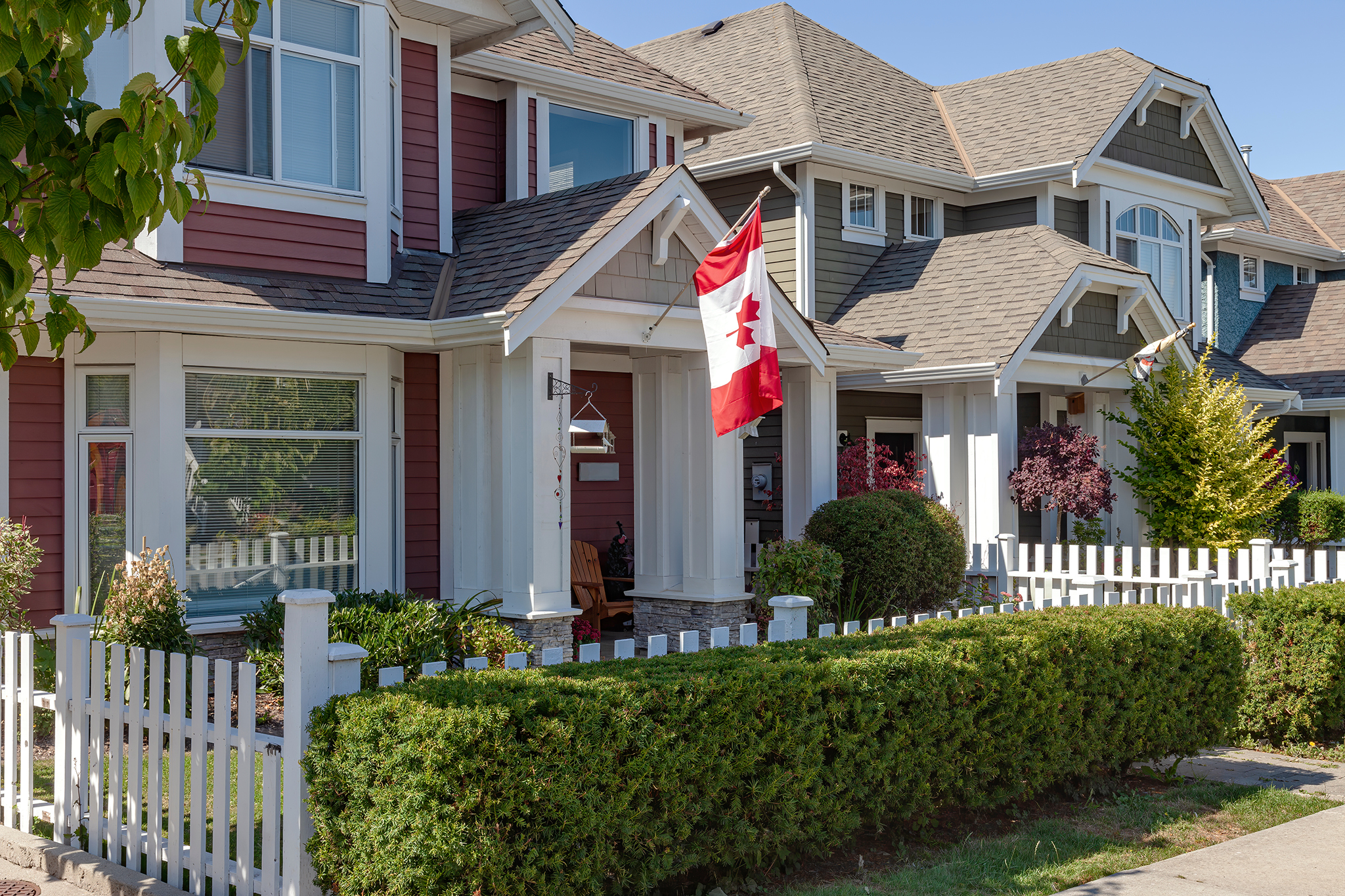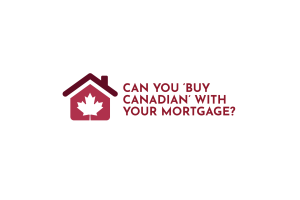With all the recent headlines about people wanting to buy Canadian products to support Canadian businesses in light of the threat of tariffs being imposed by the American president, many are seeking out specific brands to satisfy their desire to support Canadian companies. But is this limited to looking for the maple leaf logo on grocery store shelves, or does it extend beyond that into other areas? Have you ever considered how ‘Canadian’ the company that set up your mortgage is? If ensuring that you are dealing with the most Canadian lender possible is important to you, read on to learn about factors that can influence the right choice for your mortgage lender.
In this article:
- Aren’t all Mortgage Lenders in Canada Canadian?
- Do I Have Mortgage Options from Non-Canadian Lenders?
- I Guess I’ll just go to my Bank
- Conclusion
Aren’t all Mortgage Lenders in Canada Canadian?
This question comes down to how you define being Canadian. While the big banks in Canada are certainly perceived as Canadian companies, they do accept foreign investment, so their ownership is not 100% Canadian. When you look at the banking system, chartered banks are considered Canadian if they:
- Are licensed by the federal government
- Focus their operations on servicing Canadian clients
- Follow the laws laid out in the federal Bank Act
- Are not controlled by interests outside of Canada
- Operate primarily for the benefit of Canadian citizens within Canada
Note that this does not require 100% Canadian ownership. Many of the big banks have a portion of their shares owned by foreign investors. They also operate businesses outside Canada. While the advantages of operating internationally are promoted by the big six banks as ways to diversify their business, there are risks associated with foreign operations. For example, TD was recently involved in a money laundering scandal in the US and was ordered to pay fines totaling $3.09 billion. This had an adverse effect on TD’s stock price. So while operating outside Canadian borders helps diversify their business, the big banks also expose themselves to additional risk by venturing into foreign markets.
Outside of the big six banks (which are RBC, TD, BMO, National Bank of Canada, CIBC, and Scotia), you have options such as credit unions, trust companies, and mortgage finance companies when obtaining a mortgage. Let’s look at each of these alternatives.
- Credit Unions: These are locally focused, provincially regulated entities. They are member-owned and work to keep profits in the community. They are 100% Canadian, and because of local ownership, they focus on your own province.
- Mortgage Finance Companies (MFCs): These are non-bank lenders specializing exclusively in mortgage lending. The larger MFCs are Canadian owned and federally regulated. Since MFCs are deposit-taking companies, they often provide flexible options for people who have difficulty qualifying through traditional channels.
- Trust Companies: These companies can be provincially or federally regulated, and many are Canadian owned. They offer alternative lending solutions, providing options for people who do not qualify in the traditional market.
As you can see, if you are intent on ‘buying Canadian,’ there are definitely options available within the mortgage lending space that allow you to do so.

Do I Have Mortgage Options from Non-Canadian Lenders?
You need to understand that there are significant differences between how Canadian mortgage lenders and US-based mortgage lenders operate. Do you remember the sub-prime mortgage crisis in 2008 that triggered the global recession? The mortgage lending rules in the US at the time allowed that to happen. Canadian lenders, particularly the big banks, are subject to far more restrictions on how they lend and how much they can lend.
There has also been rhetoric from the White House about how US banks are not allowed to operate in Canada. The US banks that choose to operate in Canada often do not want to meet the strict requirements of becoming a Schedule 1 bank in Canada. This means that while you may be able to bank with a US-based bank in Canada, you are unlikely to be able to take out a mortgage from them.
I Guess I’ll just go to my Bank
Please don’t decide without taking the time to consider the following information. When choosing where to set up your mortgage, it is important to understand how the big banks in Canada operate to help you make an informed decision. If you have ever gone to one of the big banks and spoken with their mortgage specialist, you may have noticed that you really do not have a choice about ‘buying Canadian’ or not.
This is because when you talk to a bank employee about a mortgage, their job is to get you into one of that bank’s mortgages so that branch sales targets are met and shareholder value is maintained. There is one important detail missing from that statement. I did not say that the bank’s mortgage specialist will work with you to find the best possible solution for your needs. Their mandate is to sell the bank’s proprietary products, not to ensure you receive the best solution for your personal situation.
For example, if you visit BMO and speak to a representative, when was the last time they suggested that a local credit union might be a better fit for you? If you are still not convinced that big banks prioritize their bottom line over your best interests, read this from CBC Marketplace.
The bottom line is that if you visit one of Canada’s big six banks, you will end up buying Canadian because they will not offer you any option other than their own product. You just don’t know if it is the best solution for you.

Conclusion
We’ve taken the time here to review the options available to you as a homeowner in Canada, and you can see that the majority of mortgage options are primarily based in Canada. Yes, the big six banks have US connections and shareholders, but at the end of the day, they are still Canadian businesses governed by the rules established by our government and regulators.
If the solutions available to you are fundamentally Canadian regardless of the lender, what other criteria can you base your choice on? My choice is always to deal with a local mortgage brokerage that provides Canadian mortgage professionals who have a fiduciary responsibility to find the best solution for my needs. At the same time, I prefer not to deal with someone who risks their job if they don’t try to sell me a debt product every time we meet.
Another reason I like working with a mortgage broker is that I know I am supporting a small business in my community. These brokers often live in the areas where they work, and what better way to ‘buy Canadian’ than by supporting a local business?
Reach out to the team at Strata Mortgages to find out how their experts can help you get set up with the best mortgage solution for your unique situation today.







